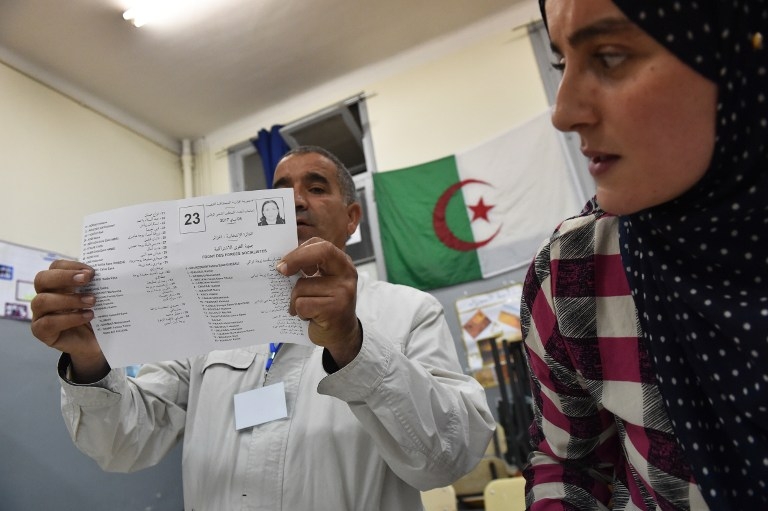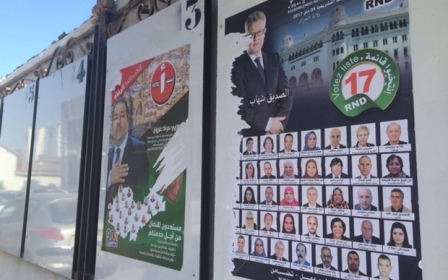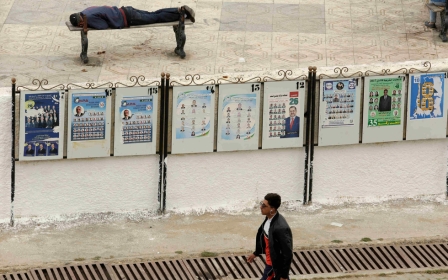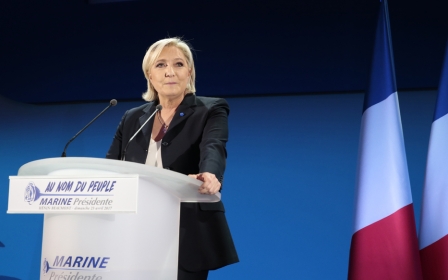Algeria vote: Ruling coalition wins legislative elections

The party of Algerian President Abdelaziz Bouteflika and its coalition ally have won a clear majority of the seats in parliament, results released by the interior ministry on Friday showed.
His National Liberation Front (FLN), which has dominated the North African nation's politics since independence in 1962, won 164 of the 462 seats. Its ally, the Rally for National Democracy (RND), won 97.
Two Islamist lists won 44 seats between them.
Turnout was only 38.25 percent, lower than 43 percent in the last election in 2012, reflecting general distrust among Algerians that a weak parliament can bring any change in a system dominated since 1962 independence by the FLN.
The FLN, with its roots in the war against colonial France, lost considerable ground from the election five years ago when it won 221 seats, the interior minister said announcing results.
A moderate Islamist alliance led by MSP party, which has in the past supported Bouteflika and the pro-government coalition, won 33 seats in the parliament.
"For political observers, there are no surprises," analyst Rachid Tlemcani told AFP. "The ruling parties take the top two places and the Islamists are on the bottom step of the podium."
OPEC member Algeria, a major gas supplier to Europe, is wrestling with reforms to cope with the fall in crude prices that is testing an economy heavily dependent on oil revenues and still mostly controlled by the state.
In power for nearly two decades, Bouteflika has been seen rarely in public since a stroke in 2013, and his health has left questions over a potential transition before his term ends in 2019 with no clarity on his possible successor.
The North African country weathered the 2011 Arab Spring uprisings with massive spending on wages and subsidies that depleted government coffers.
But a 2014 slump in crude oil prices forced the government to raise taxes and mothball many public projects.
Today, in a country of 40 million where half the population is under 30, one young person in three is unemployed.
Political stagnation
Officials spent weeks before the poll trying to drum up enthusiasm among electors, launching a campaign dubbed "Samaa sawtek" ("Let your voice be heard").
Prime Minister Abdelmalek Sellal even told an all-female audience in the eastern city of Setif to wake their husbands early, refuse them coffee and "drag" them to voting booths.
"If they resist, hit them with a stick," he said.
But many voters were put off by a scandal involving candidates accused of paying to have their names added to party lists.
Voters have also been put off by perceived stagnation in the political system and speculation over the health of their 80-year-old president, who has rarely been seen in public since a 2013 stroke.
Bouteflika voted from a wheelchair at a polling booth in Algiers on Thursday in what was his first appearance before the international media since he was sworn in for a fourth term in April 2014.
Many Algerians pay little attention to parliamentary polls in a opaque system dominated by the office of the president.
"It's normal to vote for the president, but I don't see the interest in MPs," said Mourad, a 45-year-old engineer.
Tlemcani said the disconnect between the elite and the youth had worsened in recent years.
"People are disappointed by the previous legislature, which has done nothing," he said.
New MEE newsletter: Jerusalem Dispatch
Sign up to get the latest insights and analysis on Israel-Palestine, alongside Turkey Unpacked and other MEE newsletters
Middle East Eye delivers independent and unrivalled coverage and analysis of the Middle East, North Africa and beyond. To learn more about republishing this content and the associated fees, please fill out this form. More about MEE can be found here.




